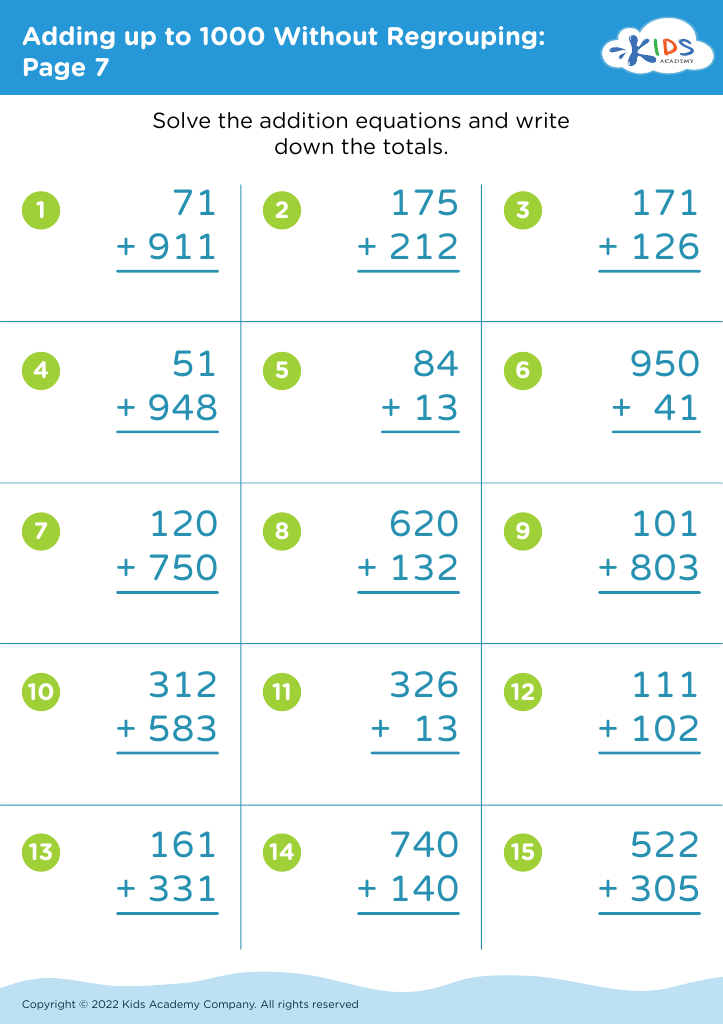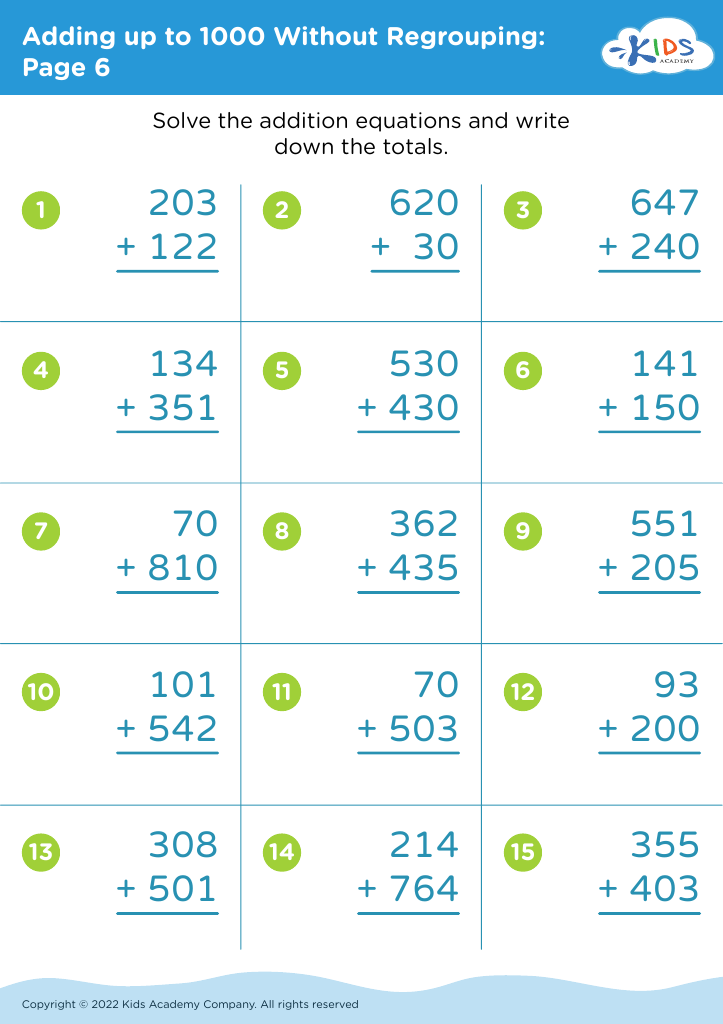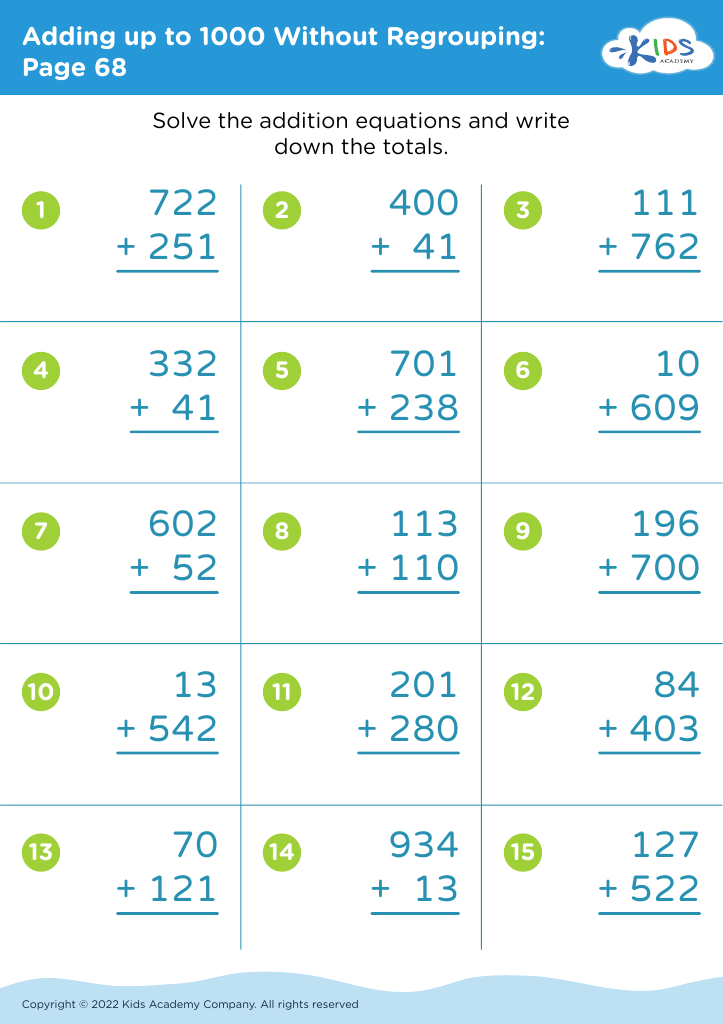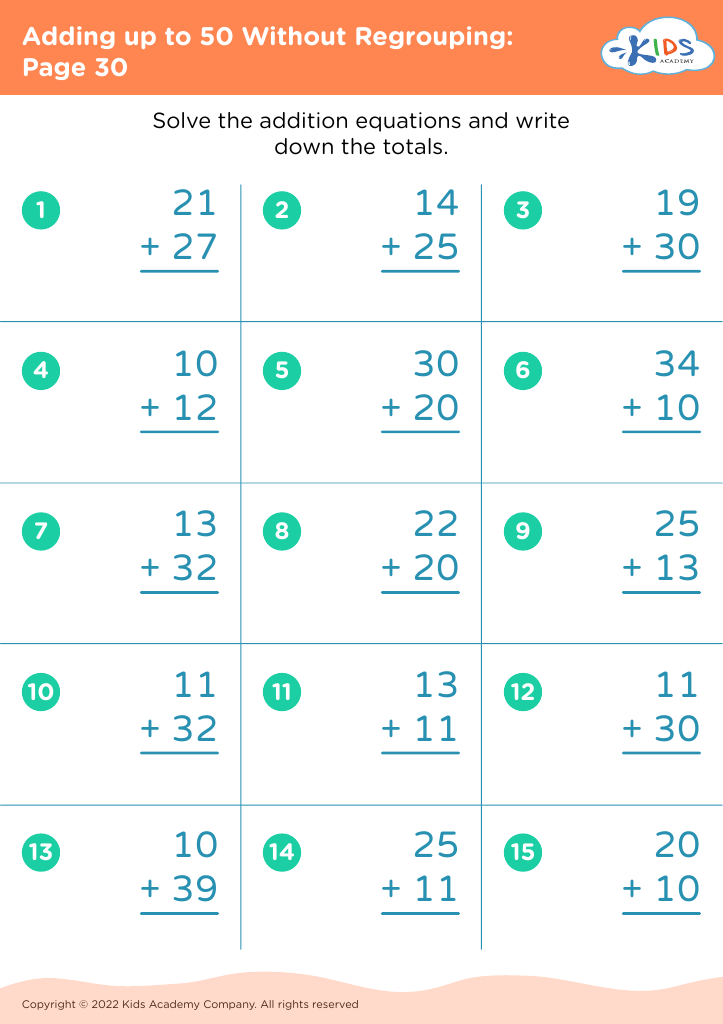Improving counting skills Addition Worksheets for Ages 5-8
10 filtered results
-
From - To
Boost your child's math proficiency with our specially designed Addition Worksheets for Ages 5-8. These engaging worksheets focus on improving counting skills, helping young learners build a strong foundation in addition. Each activity is crafted to be both fun and educational, encouraging children to practice and master their counting abilities. Perfect for early grades, our worksheets use colorful visuals and interactive exercises to make learning enjoyable. Tailored for kids aged 5 to 8, these resources support gradual progress, ensuring a smooth transition from basic counting to more complex addition tasks. Give your child an advantage in math with our effective, age-appropriate tools.
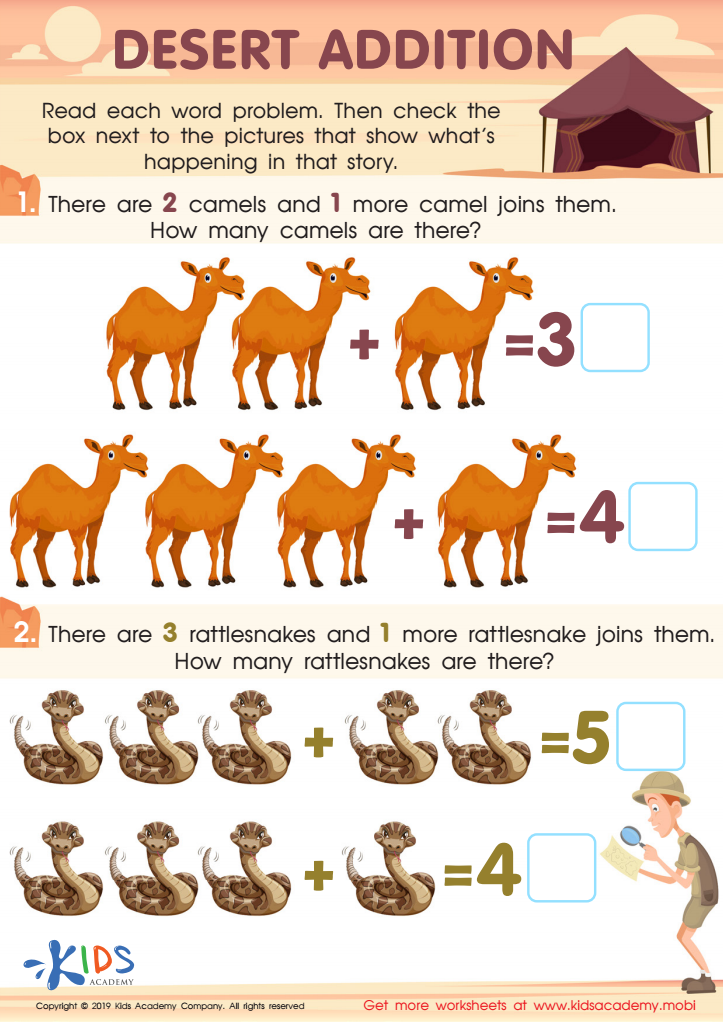

Desert Addition Worksheet
Improving counting and addition skills for children aged 5-8 is crucial as it lays the foundational groundwork for their future mathematical and cognitive development. At this young age, children are extremely impressionable and capable of absorbing new concepts rapidly. Mastery of counting and basic addition not only boosts their math abilities but also enhances their overall learning capacity.
For parents and teachers, focusing on these skills contributes significantly to a child’s confidence in tackling more advanced math problems in the future. Early success in mathematics often translates to greater academic enthusiasm and less anxiety, setting a positive tone for lifelong learning.
Moreover, strong counting and addition skills are essential for developing logical thinking and problem-solving abilities. These skills aid in understanding patterns, sorting objects, and making comparisons, all of which are vital across various subject matters and daily activities.
Furthermore, many everyday activities, such as time management, financial literacy, and even cooking or shopping, involve basic arithmetic. By helping children improve their counting and addition skills, adults equip them with practical tools to navigate through life confidently and independently.
In conclusion, investing effort in enhancing these skills during early childhood generates long-term educational benefits, instills a love for learning, and prepares children to handle both academic and real-world challenges proficiently.

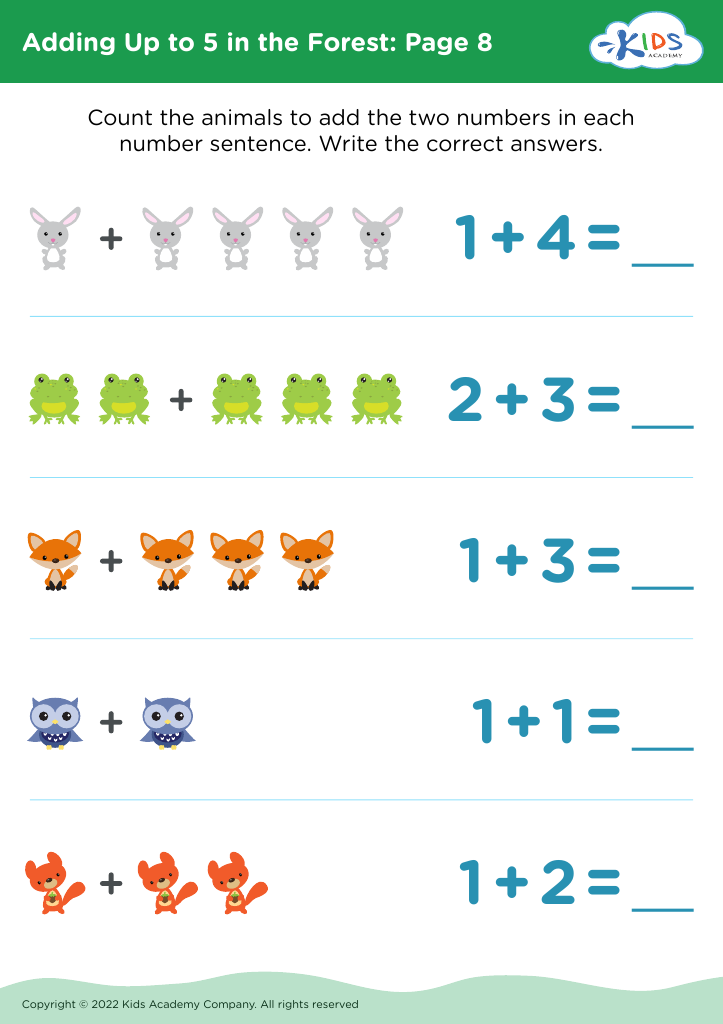
 Assign to My Students
Assign to My Students
